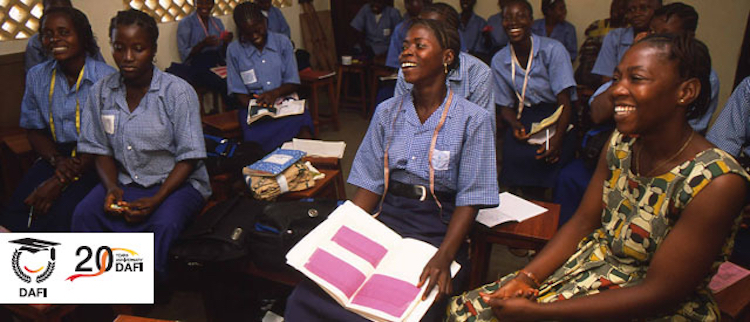BERLIN (IDN) – Germany is supporting the Albert Einstein German Academic Refugee Initiative (DAFI) at the Office of the United Nations High Commissioner for Refugees by providing 2500 additional scholarships, according to the Federal Foreign Office. The DAFI programme enables those recognised as refugees to access university education in their country of first admission.
It is particularly Syrian refugees in Syria’s neighbouring countries who stand to benefit from the new student grants. Up to 1000 scholarships will be awarded in Turkey, a further 700 will be available for refugees in Jordan, Lebanon, Egypt and northern Iraq.
In what is now the sixth year of the Syrian conflict, the situation has become more difficult above all for young Syrians who barely have education opportunities in exile. While 20% of 18 to 24-year-old Syrians studied prior to the war, the proportion of Syrian refugees in this age bracket who are at university is now only 4%. University education enables people to gain knowledge and qualifications but above all provides young people with brighter prospects for the future, prospects they urgently need.
Sub-Saharan Africa has long been in the focus of the Albert Einstein German Academic Refugee Initiative as the high numbers graduating from secondary schools mean the demand for university education has increased. Some 500 refugees from Somalia, the Congo and the Sudan will, for example, be able to begin their studies in twelve eastern and southern African countries in the winter semester 2016/17, most of them in Ethiopia, Kenya and Uganda. While the attention of the world focuses more and more on new humanitarian crises, the need experienced by these groups of refugees over the years is often forgotten.
For many years now, the DAFI programme has also been supporting Afghan refugees – the second – largest refugee group worldwide – who have hardly any access to higher education and training. A total of 300 scholarships will be awarded to Afghans living in Iran, Pakistan and India.
The German Federal Foreign Office says. Academic education and a university qualification increase the chances of young refugees and their families having an independent working life without needing additional support. Education and training are thus an important component of sustainable solutions for refugee situations. Moreover, the prospect of being able to study at university helps encourage more families to send their children to primary and secondary school.
With its commitment to university education for refugees, Germany is playing a leading role internationally. With the help of the Federal Foreign Office, the Office of the United Nations High Commissioner for Refugees has been able to use the DAFI programme to enable more than 8000 refugees around the world to study at university or train at equivalent institutions. Every year, around 2300 young people from 42 countries are thus studying and they receive support for an average of 3 or 4 years. [IDN-InDepthNews – 8 July 2016]
Photo: Female students | Credit: UNHCR
IDN is flagship agency of the International Press Syndicate.
2016 IDN-InDepthNews | Analysis That Matters
Send your comment | Subscribe to IDN newsletter
Follow us on Twitter and Facebook:
http://twitter.com/InDepthNews
http://www.facebook.com/IDN.GoingDeeper

